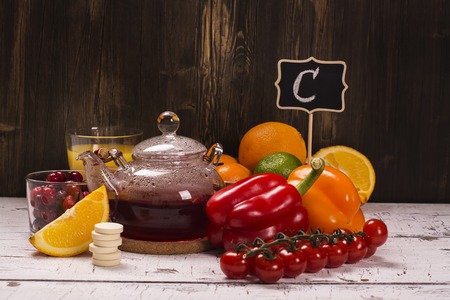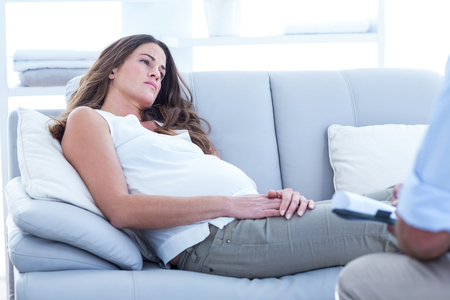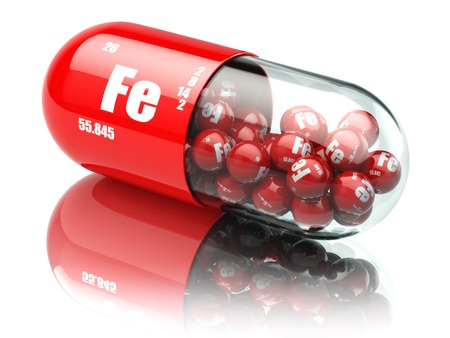Why Foods High in Iron is important?
Iron is a very important component of blood. The oxygen from the lungs is carried to the various parts of the body by the iron component (heme) of the hemoglobin. This oxygen is required by each and every cell of the body to carry out its function. Insufficient levels of iron in the blood cells affects the oxygen carrying capacity of the blood and results into Iron Deficiency – Anemia. And the only way to avoid anemia is by following a diet with foods high in iron for a better health.

Metabolism of Iron
A well nourished individual has 4 to 5 grams of iron in his body. Of this, around 2.5 grams is used to carry oxygen and the rest is stored in the form of iron-ferritin which makes up the iron reserves in our bone marrow, liver and spleen. In case of iron deficiency, these body stores come to use, especially when the iron demand increases in the body during menstruation, lactation and childbirth.
The iron is absorbed mainly from the upper part of the small intestine. The absorption of iron is accentuated by the presence of Vitamin C. Calcium on the other hand is known to slow down iron absorption. So, foods with iron when taken along with vitamin C rich foods leads to better iron absorption.
Sources of Iron
There are two forms of dietary iron-heme and non-heme for iron source. Heme iron comes from hemoglobin containing animal food sources like red meat, poultry and fish which is very well absorbed. Non heme iron is derived mainly from plant sources like fruits, vegetables, grains and nuts and is absorbed less effectively than animal iron. This is the reason iron deficiency anemia is more commonly seen in vegetarians. Above all, it is important to know what foods have iron in them for maintaining our better health.
Foods High in Iron
Here is a list of iron rich foods which one must incorporate in their daily diet. They are mainly derived from plant and animal sources as discussed above. Read below to know the proper list of foods rich in iron which you should follow carefully.
Iron Foods are of Two Categories:
Animal Derived Sources of Iron
- Chicken liver
- Beef
- Oysters
- Red meat
- Sardines
- Fish
- Turkey
Plant Derived Sources of Iron
- Spinach
- Beetroot
- Jaggery
- Lentils
- Broccoli
- Pumpkin
- Sesame seeds
- Kidney beans
- Chickpeas
- Soya beans
- Tofu
- Raisins
- Apricots
Importance of Iron in Pregnancy

In case you are planning a family, it is very essential to get screened for iron deficiency anemia. Mild anemia will not harm you but in case the anemia is severe, you may need to get treated before you get pregnant.
During pregnancy, the blood volume increases by 50% and so does the iron requirement. Insufficient levels can lead to deficiency in the growing fetus. Adequate iron stores are needed to compensate the blood loss which occurs during pregnancy.
You must be aware of the Common causes of iron deficiency anemia which are as follows:
- Heavy menstrual flow
- Diet that is lacking in iron rich foods
- Recent blood loss due to a surgery or childbirth
- Pathological conditions like Crohn’s disease
- Closely spaced pregnancy (less than 18 months)
- Diet lacking in vitamin C which is needed for iron absorption
- Having excess of dairy products, tea or coffee
Anemia (low levels of hemoglobin) are manifested by symptoms like weakness, lethargy, easy fatigue etc. Good sources of iron or eating foods high in iron can help not being an Anemic. It is a routine to check the hemoglobin levels in all pregnant ladies at regular phases of pregnancy to ensure the healthy growth of the baby.
Diagnosis and Treatment
Iron deficiency anemia is diagnosed by CBC-complete blood count examination which gives the blood values of Hb, RBCs and WBCs. The Hb level is a direct indicator of the status of anemia. The normal levels are 11-13 gm% in females and 12-16 gm% in males.
In patients with severe anemia, second line of tests may be required like-serum ferritin levels, TIBC, Reticulocyte count and peripheral smear which will help to identify the exact cause of anemia.
The treatment is commonly oral iron supplementation along with the intake of high iron foods. The only side effect being constipation and change in the color of the stool.
Prevention of Iron Deficiency Anemia

- Have plenty of iron enriched foods or a special anemia diet as suggested by your doctor. There are plenty of vegetables and other foods high in iron, especially if you are a vegetarian. Also ensure you have lots of Vitamin C which will help in better absorption of the vegan iron.
- Avoid excessive tea, coffee, dairy and soy products (calcium rich foods) which are known to slow down iron absorption and instead consume more fruits rich in iron.
- Identify and treat bleeding from any part of the body eg: bleeding from anus as in fissure, piles, bleeding gums etc.
- Take an iron supplement on a regular basis.
- Include more and more iron rich diet.


